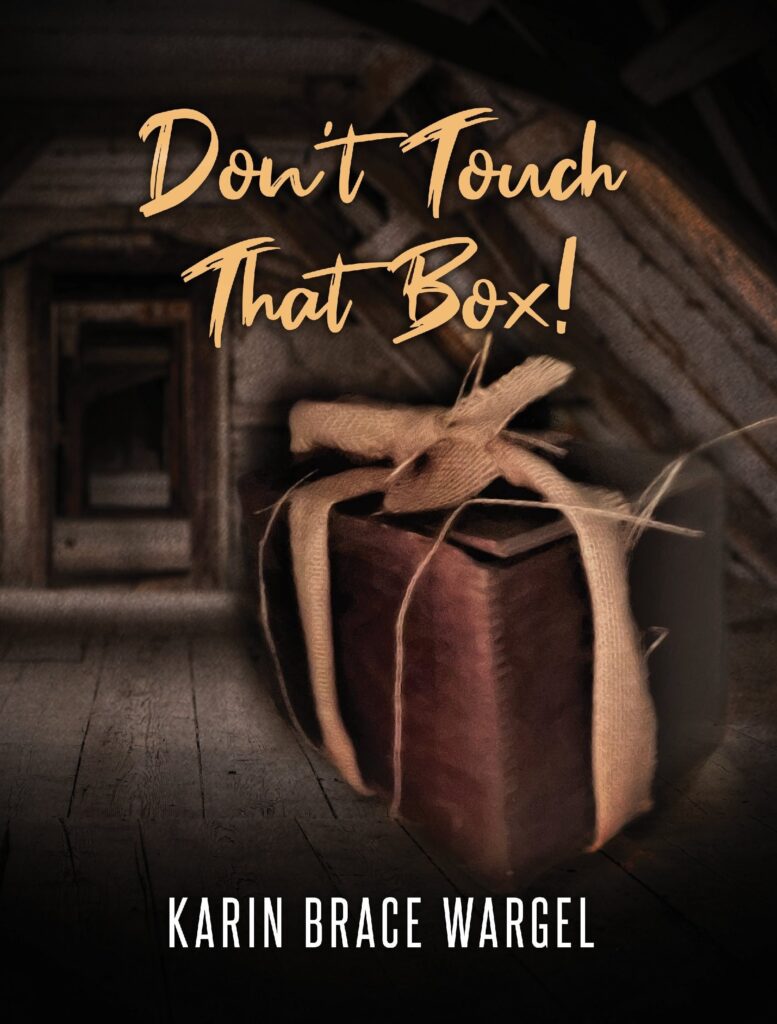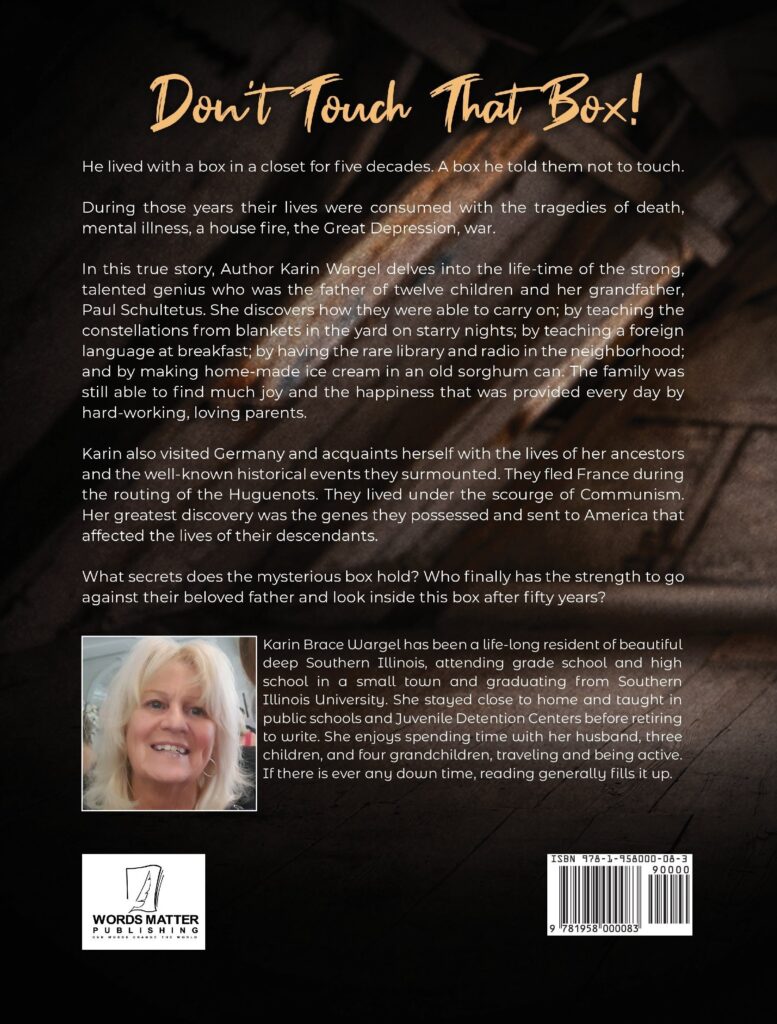


Don’t Touch That Box
How do you survive when you keep burying your children? How do you survive when your children are no longer the shining star they once were but are trudging through the quagmire of mental illness as a different human? How painful is that when you can’t do one thing to help your child with their suffering? A family with twelve children lives through so many experiences, both joyous and disastrous. Velma lived to be 100. Paul Died at 85. When you live that long it is easy to outlive your children. Velma buried six. It doesn’t matter how old the child is. The pain is still extreme.
And their house burned to the ground with all its contents, but thanks to the depression and insurance, they were able to buy a much larger farm and home and move to Pope County, Illinois.
Then came the Depression and sons joining the C.C. Camps until WWII started, and they joined the army. This brought the anxiety and devastation of sons and neighbors preparing for war and going to Europe. Daughters moving away to large towns to work in war plants. Paul kept a map on the wall.
Did Paul ever yearn for the simple, carefree, pain free days of Vaudeville? No. He knew how to face any problem with equanimity and confidence. And all those children gave him the happiness to salve constant and chronic intruding troubling times.
Have you tried to go even one week without a refrigerator, a dishwasher, a microwave, water on tap, central heat, an air conditioned car (or two), a telephone on the wall, much less a cell phone, a computer, or just one of these? Try three days. Aww how long it takes you to give up.
In this true story, Don’t Touch That Box, Karin Wargel, being intrigued by this true Renaissance Man who was her grandfather, Paul Schultetus, discovers how they dealt with all this trauma. How did they make their lives so exciting and lovely for themselves and their children that they were able to move on and carry on? And they still taught them about the constellations from blankets in the yard on starry nights, a foreign language at breakfast, read books, listen to the old radio, go to movies, and how to make ho-made ice cream in an old sorghum can.
Then I decided to go to Germany to find my family and my roots-who I am, and why I am who I am. I wasn’t disappointed. They were amazing people over there, also.
I have learned many tidbits about life from my family. I hope you do, also. I would also like to instill the importance of knowing where you came from. But, of course, I know it was easier for me. I had help from twelve siblings, a multitude of cousins, and my sister!
Mostly I just hope you enjoy the story.
Karin Brace Wargel
